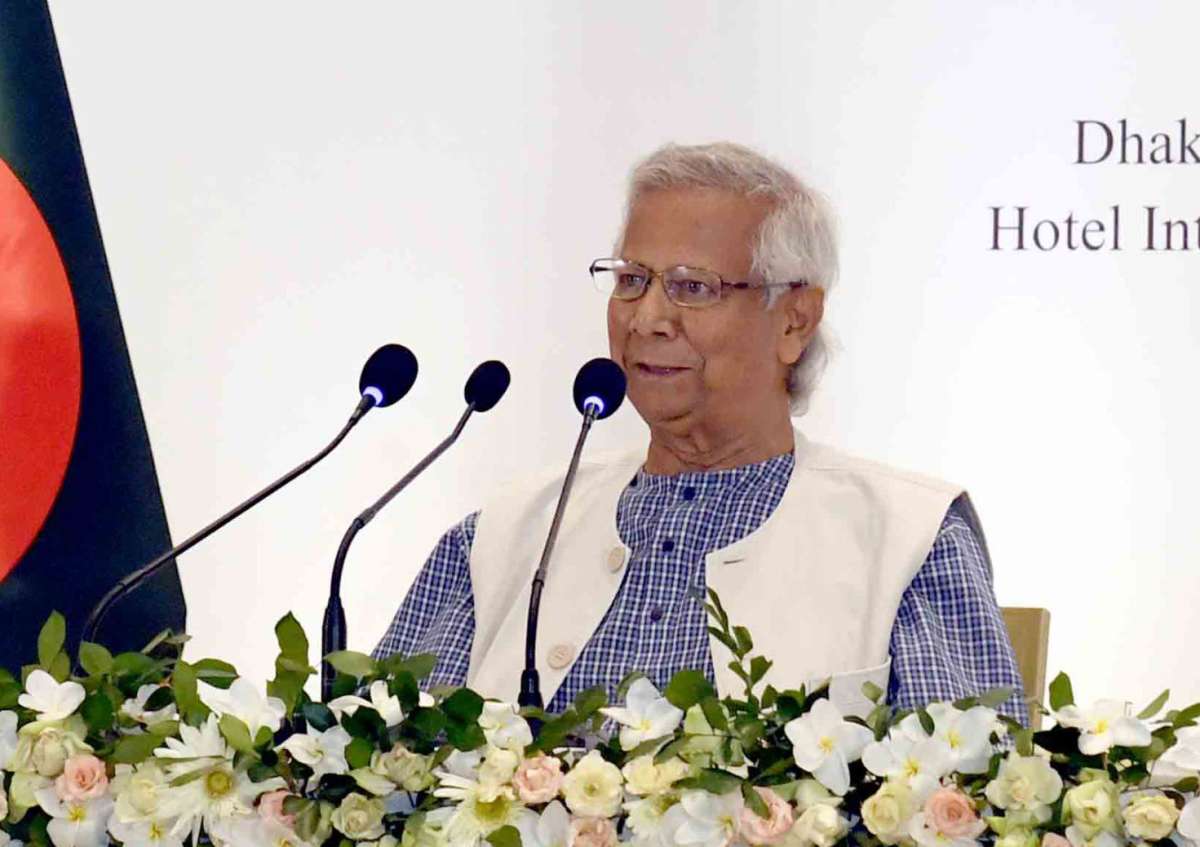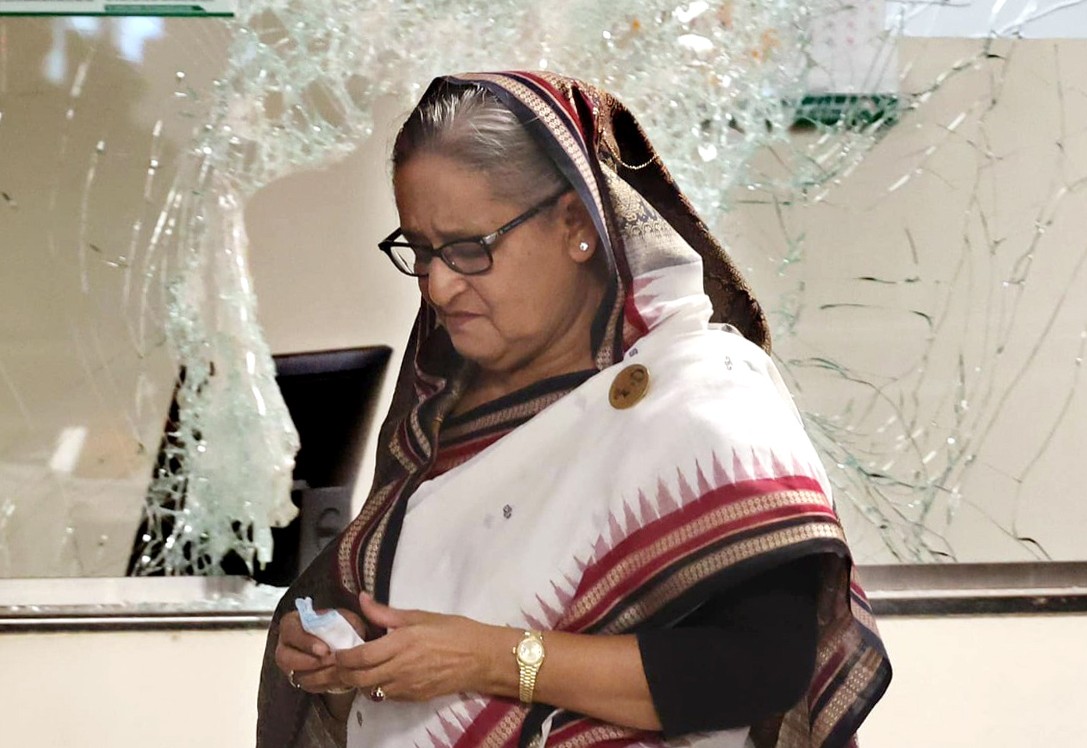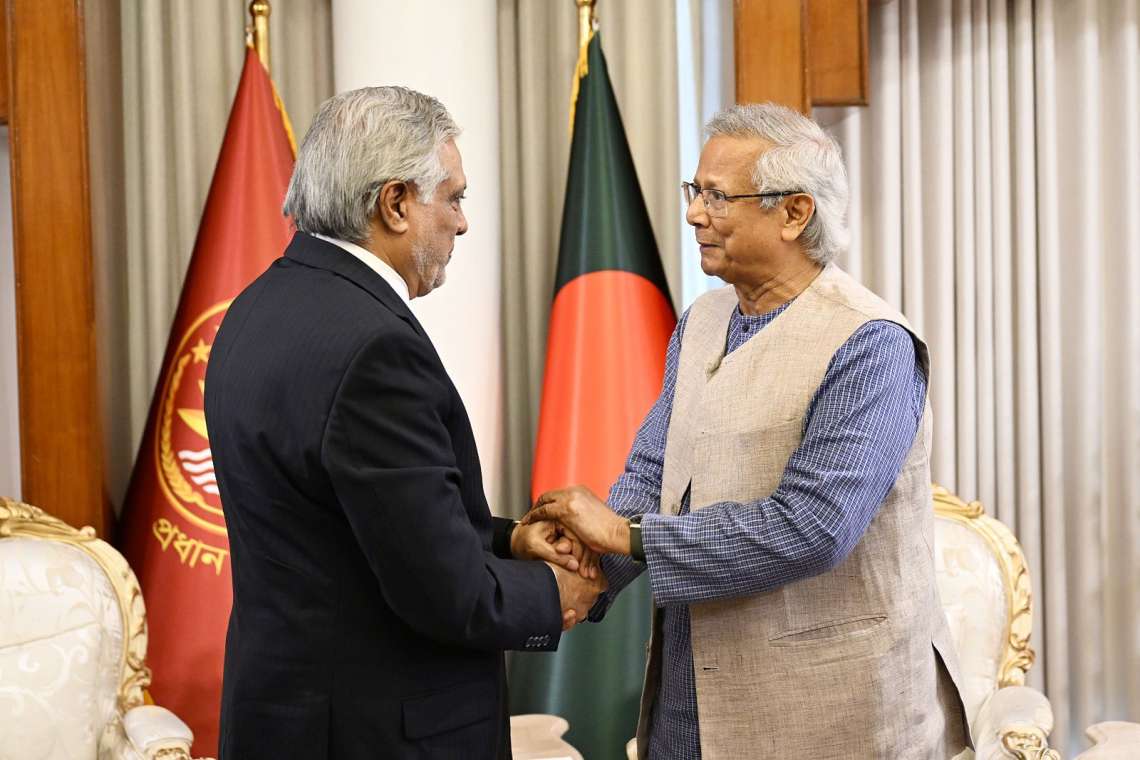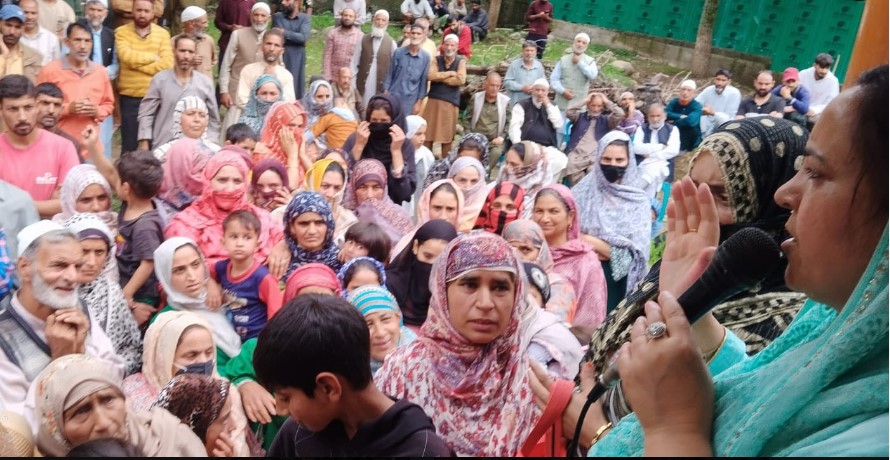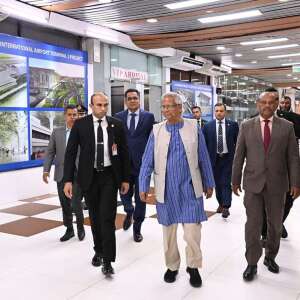Hasina fled to India in early August, following large-scale protests that peaked on August 5….reports Asian Lite News
Muhammad Yunus, the head of Bangladesh’s interim government, has urged former Prime Minister Sheikh Hasina to refrain from making political statements while in India, calling it an “unfriendly gesture.” Yunus emphasised that her silence is essential to avoid causing discomfort for both nations, as Bangladesh considers her extradition. Hasina, who fled to India after stepping down amid anti-government protests, has been outspoken on issues, which Yunus says complicates matters between the two countries.
“If India wants to keep her until Bangladesh requests her return, the condition should be that she keeps quiet,” Yunus stated in an interview with PTI at his residence in Dhaka. He stressed that while Bangladesh values its relationship with India, New Delhi must move beyond the narrative that portrays the Awami League as the sole protector against extremism.
Yunus appeared to reference Hasina’s comments made on August 13, when she called for justice regarding recent violence in Bangladesh. He expressed concern that her public remarks from India are hindering efforts to let the situation settle. “Had she remained quiet, the issue might have faded from public memory,” he said, noting that her ongoing political activity is stirring tensions.
Hasina fled to India in early August, following large-scale protests that peaked on August 5. Her continued presence in India has fueled speculation and debate within Bangladesh. When asked whether the government had communicated its concerns to India, Yunus confirmed that Bangladesh had made its position clear, firmly requesting Hasina to remain silent. He further emphasized that her actions, including political campaigning from abroad, are perceived as disrespectful given the circumstances of her departure.
The interim government, Yunus noted, is committed to delivering justice to the people of Bangladesh, ensuring accountability for those responsible for what he described as atrocities under Hasina’s rule. He reiterated that her return to face trial is crucial for restoring peace within the country.
Regarding the future of Bangladesh’s relations with India, Yunus stressed that while Bangladesh desires good relations, India must move away from its perceived over-reliance on Hasina’s leadership for stability. He criticized the narrative that only her leadership can prevent the rise of Islamist extremism, asserting that Bangladesh is a capable nation that can chart its own course.
Yunus also addressed concerns about recent violence targeting Hindu minorities, dismissing it as being overblown
to serve as an excuse. He emphasized that portraying the conditions of minorities as a major issue is not reflective of the broader situation in Bangladesh.
Yunus concluded by calling for cooperative efforts to improve relations between India and Bangladesh, which he acknowledged are currently strained. He expressed hope that both nations could work together to rebuild their ties, stressing the importance of moving past old narratives to foster a more balanced relationship.
ALSO READ: Why Bangladesh Rises and Pakistan Stays in Crisis


